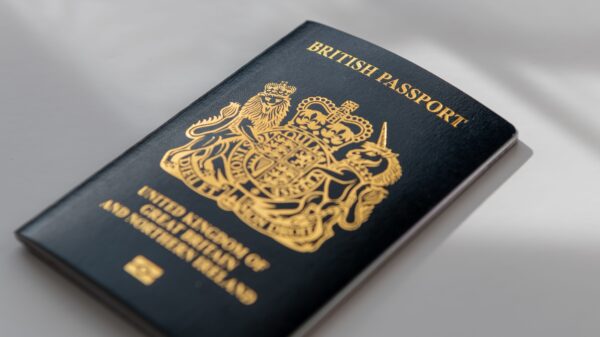It was recently reported that the passport application for a British child was refused over “copyright infringement”. The child in question’s name was Loki Skywalker Mowbray and he was born on 4 May (also known as Star Wars Day for the uninitiated among you). You will be unsurprised to hear that once the media got hold of the story, the Home Office seemingly decided that they were no longer concerned with any potential copyright issues, and the passport was issued. But what are the rules here?
The guidance can be found in the collection of passport guidance for HM Passport Office caseworkers. I recommend having a scroll through that page as there are some interesting and fairly niche areas covered (for example, I was unaware that a passport could be cancelled for non-payment of child maintenance, or that before August 2023 “specimen” passports were issued for entertainment purposes).
There are three different guidance documents covering what names a passport can and cannot be issued in:
The first guidance document is the most relevant here and sets out the three different reasons a passport application may be refused because of a person’s name.
Names that cause public offence
As the “Names that cannot be used” guidance explains, people cannot use a British passport to include a name that may cause offence, outrage or promote unlawful activity. The examples given that may cause offence or outrage include swear words, inappropriate religious meanings and slanderous references. Names that can promote unlawful activity include if someone is changing their name to hide the fact that they are on the sex offenders register, names associated with criminal gangs or extremist organisations or words that promote racial or religious hatred or incite crime or anti-social behaviour.
The guidance does note that it is not possible to definitively set out what names may come under this category and possibly in recognition of the potential difficulties, caseworkers are required to discuss a refusal with their line manager in the first instance following which it must be referred to a Higher Executive Officer who will take the final decision.
Names that breach copyright or trademark laws
The guidance describes it as “unlikely that a customer will use a name in a passport to advertise goods or services” but that passports will not be issued in such a name without the consent of the trademark or copyright owner. Copyright law is absolutely not my area of expertise but it is difficult to understand from the guidance how Loki was refused a passport. The same process as for offensive names applies, in that decisions must be referred to a Higher Executive Officer. There were presumably then at least two people who thought that Loki Skywalker was in breach of trademark or copyright laws (until the media got in touch).
Names that contain numbers or symbols that cannot be used for technical reasons
The passport standards are set by the International Civil Aviation Organisation and do not permit passports to be issued with a number, symbols, punctuation, diacritical characters or accents in the name, or if there are “too many” letters.
If the person does have a number in their name, the passport can still be issued but the number will be spelled out, so “Mary Sm1th” would become “Mary Smoneth”. Names with apostrophes are fine, although it seems that the occasional issue may still arise here as there is an internal escalation process set out for when the system is not accepting an apostrophe.
Diacritical characters (a mark, point or sign added to a letter) or accent marks are not accepted by the system. Most languages have alternative spellings of names to take these system limitations into account, as published in a transliteration table. The transliteration table seems to just removes the mark from whatever letter it was attached to, so the unmarked letter replaces that within the name.
The character limit for passports is 30 characters each for both forenames and surname, including spaces. When a passport applicant has a name that exceeds either of those limits, the passport can still be issued but with a shortened version of the name, or initials can be used for middle names only. Applicants who do have long names that exceed the limits need to put their preferred shortened name on the application form and then include their full name in the “other information” section of the form (parental consent is needed if the applicant is a child).
Where an application is to be refused, applicants will be advised that the passport cannot be issued in the name they applied under. If they do want a passport, they need to change their name and provide evidence of that and that the new name is being used for all purposes. If the applicant tells the passport office that they will change their name, then the application will be put on hold rather than refused, while the evidence is provided. If no evidence is provided then the application will be deemed withdrawn rather than refused. If the applicant does not agree to change their name then the passport application will be refused.
Conclusion
So I suspect that with Loki’s case, the initial decision had been taken that the name was in breach of copyright, and they had written out to the family advising them to change his name. The family then very sensibly went to the media. Anyone in a similar position without access to a journalist may wish to seek legal advice.













